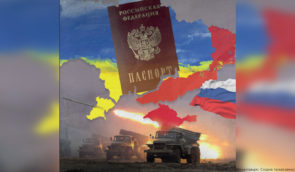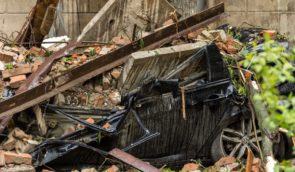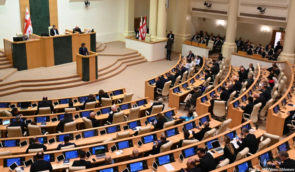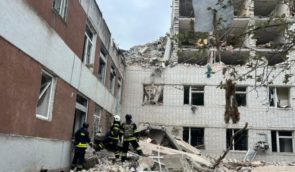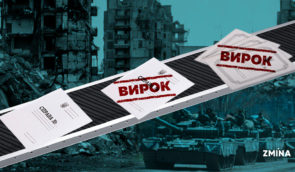Human rights defenders propose easier access of foreign journalists to Crimea
The current system of special permit issuance creates many barriers to access of foreign journalists to Crimea, which calls for its simplification.
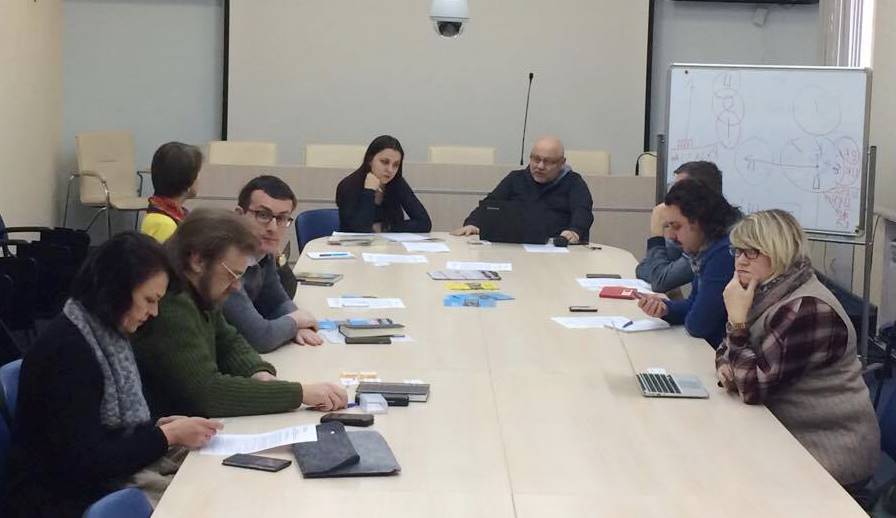
This was the leitmotif of the round-table “Foreign journalist access to Crimea: how can we break the information blockade?” that was organized by the Human Rights Information Center at the National Union of Journalists of Ukraine.
According to Article 10 of the Law “On Securing the Rights and Freedoms of Citizens and the Legal Regime on the Temporarily Occupied Territory of Ukraine”, foreign nationals may initiate their visit to Crimea only from mainland Ukraine and only in possession of a special permit. The State Migration Service of Ukraine (SMSU) issues such permits.
The standard operational procedures that regulate access of foreign nationals to Crimea are spelled out in the Decree of the Cabinet of Ministers of Ukraine as of 4 June 2015 № 367 amended as of 16 September 2015 (through Decree №722).
According to Head of Board of the Human Rights Information Center, Tetyana Pechonchyk, the noted Decree is unnecessarily overburdened with red tape and creates significant barriers for foreign journalists’ work in Crimea: “In order to receive the special permit, a foreign journalist has to come to Ukraine, file the documents in Ukrainian, receive a letter of approval from the Ministry of Information Policy, take all of the papers to the SMSU and – on top of it all – wait for up to 5 days. There is no mechanism to file the documents from abroad through consular and diplomatic offices of Ukraine; documents may not be submitted in English. Instead of reporting on repressions in Crimea, foreign journalists are wearing their patience thin, wasting time and money to cut through this red tape”.
In addition, according to Tetyana Pechonchyk, the relevant government decree contains an exhaustive list of foreign nationals’ categories which may be entitled for a special permit to enter Crimea. The list fails to mention lawyers, documentary film producers or researchers whose presence is important to document and report on the human rights situation.
The Human Rights Information Center calls for a simplified procedure for foreign journalists, international human rights missions or lawyers to Crimea. Amongst other proposals are the introduction of a notification-based instead of a permit-based mechanism for admission, creation of a simplified system of permits for international human rights missions, journalists and lawyers who aim at monitoring and defending human rights in Crimea or reporting on them.
Another hurdle which was mentioned by foreign journalists is the requirement to enter Crimea from mainland Ukraine.
Reporter for the Polish “Gazeta Wyborcza”, Petro Andrusieczko noted that when he entered Crimea from mainland Ukraine, he had a three-hour talk with an FSB-officer from Russia who interrogated him on a lot of private information. The journalist noted that Ukraine, by complicating access to Crimea, is losing out since journalists – knowing the difficulties that await them – simply refuse from traveling to the peninsula.
Crimean journalist and reporter for Radio Liberty, Serhiy Mokrushyn, noted that the current system that complicates access to Crimea is senseless. Propaganda-mongers from Russia are traveling to Crimea without any restrictions, as Ukraine cannot control who is entering the occupied peninsula from the Russian side.
Adviser to the Minister of Information Policy, Yuliya Kazdobina, noted that the position of the Ministry coincided with the thoughts voiced by the rights-defenders, and that MIP was also supportive of a simplified access of journalists to Crimea.
Crimean journalists with BlackSeaNews, Andriy Klymenko and Tetyana Huchakova, believed that journalist access to Crimea should be simplified, but opposed the idea of allowing foreign reporters to enter Crimea from the Russian territory since this, according to them, was a step to dilute the sanctions against Russia.
***
The round table was attended by Ukrainian and foreign journalists, as well as representatives of media-organizations, including the National Union of Journalists of Ukraine, Institute of Mass Information, Regional Press Development Institute, Detector.Media and others.
The comprehensive list of proposals voiced by the Human Rights Information Center regarding simplification of the existing procedure for access of foreign journalists and rights-defenders to Crimea is given in the attachment.
This was the leitmotif of the round-table “Foreign journalist access to Crimea: how can we break the information blockade?” that was organized by the Human Rights Information Center at the National Union of Journalists of Ukraine.
According to Article 10 of the Law “On Securing the Rights and Freedoms of Citizens and the Legal Regime on the Temporarily Occupied Territory of Ukraine”, foreign nationals may initiate their visit to Crimea only from mainland Ukraine and only in possession of a special permit. The State Migration Service of Ukraine (SMSU) issues such permits.
The standard operational procedures that regulate access of foreign nationals to Crimea are spelled out in the Decree of the Cabinet of Ministers of Ukraine as of 4 June 2015 № 367 amended as of 16 September 2015 (through Decree №722).
According to Head of Board of the Human Rights Information Center, Tetyana Pechonchyk, the noted Decree is unnecessarily overburdened with red tape and creates significant barriers for foreign journalists’ work in Crimea: “In order to receive the special permit, a foreign journalist has to come to Ukraine, file the documents in Ukrainian, receive a letter of approval from the Ministry of Information Policy, take all of the papers to the SMSU and – on top of it all – wait for up to 5 days. There is no mechanism to file the documents from abroad through consular and diplomatic offices of Ukraine; documents may not be submitted in English. Instead of reporting on repressions in Crimea, foreign journalists are wearing their patience thin, wasting time and money to cut through this red tape”.
In addition, according to Tetyana Pechonchyk, the relevant government decree contains an exhaustive list of foreign nationals’ categories which may be entitled for a special permit to enter Crimea. The list fails to mention lawyers, documentary film producers or researchers whose presence is important to document and report on the human rights situation.
The Human Rights Information Center calls for a simplified procedure for foreign journalists, international human rights missions or lawyers to Crimea. Amongst other proposals are the introduction of a notification-based instead of a permit-based mechanism for admission, creation of a simplified system of permits for international human rights missions, journalists and lawyers who aim at monitoring and defending human rights in Crimea or reporting on them.
Another hurdle which was mentioned by foreign journalists is the requirement to enter Crimea from mainland Ukraine.
Reporter for the Polish “Gazeta Wyborcza”, Petro Andrusieczko noted that when he entered Crimea from mainland Ukraine, he had a three-hour talk with an FSB-officer from Russia who interrogated him on a lot of private information. The journalist noted that Ukraine, by complicating access to Crimea, is losing out since journalists – knowing the difficulties that await them – simply refuse from traveling to the peninsula.
Crimean journalist and reporter for Radio Liberty, Serhiy Mokrushyn, noted that the current system that complicates access to Crimea is senseless. Propaganda-mongers from Russia are traveling to Crimea without any restrictions, as Ukraine cannot control who is entering the occupied peninsula from the Russian side.
Adviser to the Minister of Information Policy, Yuliya Kazdobina, noted that the position of the Ministry coincided with the thoughts voiced by the rights-defenders, and that MIP was also supportive of a simplified access of journalists to Crimea.
Crimean journalists with BlackSeaNews, Andriy Klymenko and Tetyana Huchakova, believed that journalist access to Crimea should be simplified, but opposed the idea of allowing foreign reporters to enter Crimea from the Russian territory since this, according to them, was a step to dilute the sanctions against Russia.
***
The round table was attended by Ukrainian and foreign journalists, as well as representatives of media-organizations, including the National Union of Journalists of Ukraine, Institute of Mass Information, Regional Press Development Institute, Detector.Media and others.

